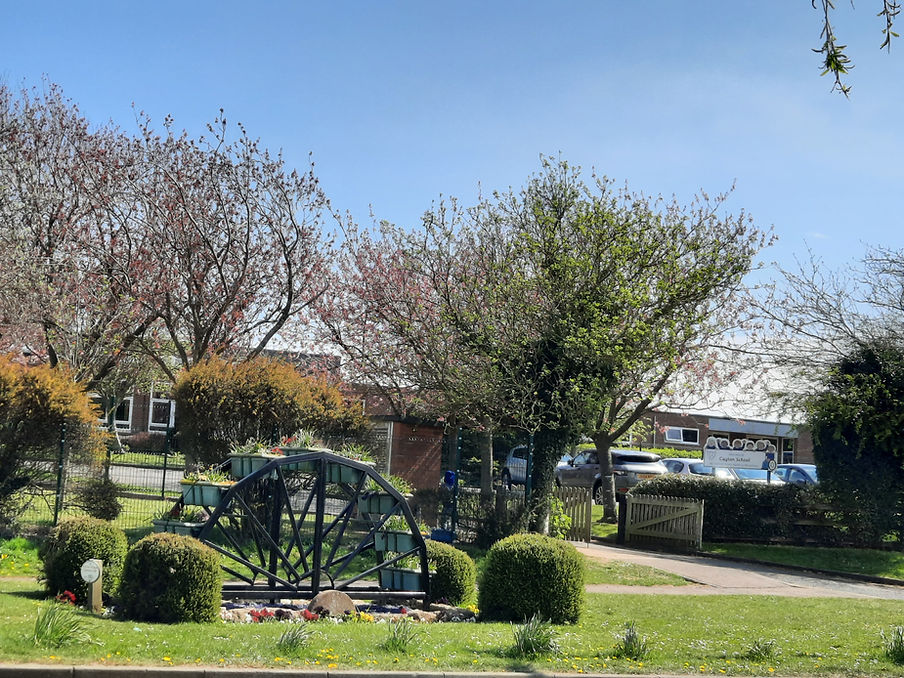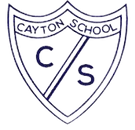

Learn from yesterday, seek today and aim for tomorrow
“There are high expectations for all pupils. Pupils’ attendance is high. Pupils’ conduct in and around school is exemplary.”
“Parents and carers are committed to the school. They are overwhelmingly positive about the impact the school has on their children.” “Pupils thrive in a carefully developed, nurturing environment.” “Pupils have an appetite for learning.”
“All decisions at Cayton are taken with the pupils’ best interests at their centre.” Ofsted November 2024
IMPORTANT: Please note that we are a nut-aware school. Nuts should not be brought into the building due to allergies.
Being a Historian at Cayton
Here at Cayton school, we aim to encourage pupils to develop an understanding of the past as historians, investigating and creating their own accounts of history based on a range of primary and secondary sources. Pupils will build on from previous years- comparing aspects such as timelines and chronological events, significant individuals and events, local history and ancient civilisations and themes of government and power. Our history curriculum covers all of the skills, knowledge and understanding as set out in the National Curriculum.
We teach children a sense of chronology, in order to develop a sense of identity and a cultural understanding based on their historical heritage. This enables our children to learn to value their own and other people’s cultures in modern multicultural Britain and learn how we developed and changed as a society before and after the British Empire. Through studying different time periods, pupils will find similarities and differences between ways of life when compared with our own and will become curious and engaged learners who learn from the past through their own investigations. A wider awareness leads to the children having some knowledge of historical development in the wider world. In history at our school, we will also give pupils opportunities to develop their skills of enquiry, investigation and analysis. Here are some examples of what a historian at Cayton School will have:
-
An excellent knowledge and understanding of people, events and contexts from a range of historical periods.
-
The ability to think critically about history and communicate their thoughts.
-
A passion for history and an enthusiastic engagement in learning, which develops their sense of curiosity about their past.
-
The ability to think, reflect, debate, discuss and evaluate the past, formulating and refining questions and lines of enquiry.
"We are not makers of history. We are made by history. - Martin Luther King Jr.
The Learning Journey
Early Years
In Early Years, children start by beginning to understand the world around them, making sense of their own personal family history and experiences. Children discuss familiar situations and begin to grasp the concept of time periods, comparing and contrasting characters from stories, including real figures from the past.
They learn about the lives of people around them and their roles in society, drawing on some similarities and differences between things in the past and now. They also study local history through their trip, for example, to Scarborough Castle. Through narrative, they learn to understand the past through settings, characters and events encountered in books read in class and storytelling. Observations are recorded through photos, QR codes, videos and recording of their verbal responses.

Key Stage One

In Key Stage 1, the themes of chronology, gender roles in society and power will begin to develop and will continue to develop through school as pupils revisit prior knowledge. Children will focus on timelines of significant figures and events, both in terms of national and worldwide change. Neil Armstrong and Sir George Cayley (which also provides a local link) will be compared with Katherine Johnson from Year 1 to Year 2 as we learn about diverse figures and compare gender roles and power. Pupils should develop an awareness of the past, using the correct vocabulary and phrases relating to the passing of time. Through using a mixture of primary sources, such as toys from a different time or artefacts on a trip, and secondary sources, such as videos and a wide variety of literature, pupils will identify similarities and differences between ways of life in different periods. They will form their own enquiry questions, again using narrative as well as class discussions to find out about the past, comparing this with present day.
Lower Key Stage Two
Pupils should continue to develop a chronologically secure knowledge and understanding of British, local and world history, establishing clear narratives within and across the periods they study.
Through Lower Key Stage 2, children extend on their knowledge of gender roles and chronology through studying, for example, changes in Britain from the Stone Age to the Iron Age in Year 3. They will learn to compare and contrast a range of artefacts (using technical vocabulary) used at the time, comparing with present day by exploring primary and secondary sources. In Year 4, pupils extend this knowledge by comparing gender roles of Athenians and Spartans in Ancient Rome, as well as with present day, looking at the chronology with more awareness of political parties, war and the origins of democracy. This is followed on from learning the concept of democracy and monarchy in Key Stage 1 and key lines of enquiry are explored and debated e.g. Would you rather live in Athens or Sparta if you were born in Ancient Rome?

Upper Key Stage Two

Children should note connections, contrasts and trends over time and develop the appropriate use of historical terms. They should regularly address and sometimes devise historically valid questions about change, cause, similarity and difference, and significance.
During Upper Key Stage 2, children extend again on their knowledge of local history (e.g. their learning about the Stone Age site Star Carr as well as previous trips and topics in their locality), exploring the rich and poor divide during the Victorian times and how this affected e.g. Scarborough and its current architecture. They also explore the Anglo-Saxons as well as the Vikings, drawing on chronology knowledge to look at county boundaries and how they came to be, as well as the etymology of place names. Through comparing Edward the Confessor to rulers such as pharaohs in Year 4, power roles and gender roles can also be examined whilst asking key questions about how the actions of few dictated societal changes. In Year 6, pupils look at how, for example, how empires came to be- from Alexander the Great to the British Empire, focusing on how they came to so much power and how the future of the world changed as a result. By studying Hitler during World War II, we can debate how such a tyranny and the Holocaust was ‘allowed’ to happen, comparing this with the Athenian concept of democracy many years before.


